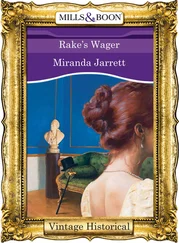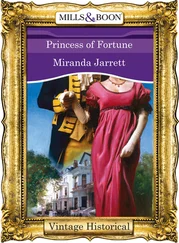Just as she warned, beggars of every age were already crowding around the door with their filthy hands outstretched like so many claws, pressing so closely that they rocked the chaise on its springs and made the horses whinny nervously.
“Hold now, Miss Penny, you can’t go out there with them!” he said, grabbing her arm to keep her back. “It’s not safe!”
She looked back at him over her shoulder, incredulous and a little disdainful at the same time, as she shook her arm free of his hand.
“Of course I can, your grace,” she said, looping one of the baskets into the crook of her arm, “and I do, every Sunday.”
“But consider what you’re doing, Miss Penny, the risk you are taking—”
“Being poor and hungry does not turn a person into a dangerous beast, your grace,” she said firmly. “But if you are too frightened for your own safety, then you may feel free to remain here.”
Before he could catch her again, she’d pushed the door open and hopped outside, holding the basket before her like a wicker shield as she made her way through the beggars. Now he realized they’d stopped before a woebegone little church, bits of stonework broken away like a stale pie crust and the once-red paint worn from the tall arched doors. The church’s pastor stood before one of these doors, smiling and holding it open for Amariah and her baskets.
“Your grace?” One of his footmen belatedly appeared at the door, his expression as confused as Guilford’s own must be. “If you please, your grace, what—”
“Damnation, take those infernal baskets down for Miss Penny!” He couldn’t let Amariah go alone, not into this mess, and with a deep breath he pushed past the footman into the crowd after her. The stench was appalling, and it took all his willpower not to cover his nose with his handkerchief. Who would have guessed other humans could smell as vile as the refuse beneath their feet?
“A penny, guv’nor, only a penny!”
“Please, sir, please, for me poor mum!”
“Sure, sure, a fine gentleman like yourself can spare a coin for a sufferer!”
Resolutely Guilford pushed forward, focusing on Amariah and not those jostling around him. With a horrible thought, he pressed his hand over his waistcoat, relieved to feel the comforting weight of his gold watch and chain still there. The timepiece had been in his family for generations, and he’d hate to have it nicked by one of these sorry rascals.
“Please, m’lord, please—”
“Not today, I’m afraid,” he mumbled. He told himself he was only following Amariah’s suggestion, but he still felt like some wretched miser with his pockets stitched shut. “I’ve no loose coins with me.”
Finally he reached the church, bounding up the worn stone steps and away from the beggars. His heart was pounding, and he could feel the unpleasant prickle of sweat beneath his shirt collar.
At least Amariah was beaming at him for his trouble, no inconsiderable consolation.
“Your grace, I should like to present Reverend Robert Potter,” she said in exactly the same easy, gracious tone she used when introducing foreign princes and other grandees at Penny House. “Reverend Potter is the vicar here at St. Crispin’s parish, and he sees that the food we bring from Penny House is given away to those who need it most. Reverend Potter, His Grace the Duke of Guilford. Lord Guilford is most interested in our charities, Reverend, and is accompanying me today to observe for himself.”
His hands clasped over the front of his plain black cassock, Potter nodded and smiled warmly. He was tall and thin, almost gaunt, but the kindness in his weathered blue eyes softened his entire face.
“I cannot tell you how honored I am to meet you, your grace, and to have you here at St. Crispin’s,” he said. “Would that more great lords were like you and Miss Penny, and took such a worthy interest in the sufferings of the unfortunate.”
Guilford cleared his throat and nodded in return, feeling like some sort of false play-actor standing on these steps. “Miss Penny can take all the credit,” he said. “She’s the one who brought me here.”
“She also seems to have brought more than the usual amount of food, your grace.” Potter watched with obvious approval as the footmen brought in the rest of the baskets from the chaise. “But how rare to have it delivered to us in a ducal carriage!”
Amariah looped her hand into his arm. “Come inside, your grace, and see everything that we brought.”
He let her lead him inside the church, cool and damp after the sun, and into a small hall to one side of the church itself. The bare walls were whitewashed, the worn planked floor swept clean, and three rows of long board tables ran the length of the room. As soon as the footmen set the baskets on the tables, two plainly dressed women and a boy in an uncocked black hat began unpacking them and arranging the food inside into wooden trenchers. There were no benches at the tables; after seeing the crowd outside, Guilford guessed they wouldn’t exactly sit and linger over their meal, anyway.
“As much as we brought, it won’t begin to be enough,” Amariah said as she, too, began to transfer apples from a basket to a trencher. “There are so many in London who are hungry, and they are quick to tell one another when they discover a place where charity food is to be had. As poor as this neighborhood is, I’d guess that more than half of those folk waiting outside are from other places, folk who’ve come here in hopes of being able to take away the hunger for even this day.”
One of the women carefully unwrapped a large roast goose with only a few slices missing from one side, a goose that Guilford recognized as having graced one of the sideboards at Penny House last night.
“That was left from us, Miss Penny, wasn’t it?” he asked, watching as the woman began slicing the meat free from the carcass. Their efficiency was making him feel uncomfortably idle.
“If from ‘us’ you mean from Penny House, then yes,” Amariah said, pausing to toss one of the apples lightly in her hand, like a red polished ball. “The members expect everything to be fresh for them each night, seasoned and served to exquisite perfection, and then, like naughty children, they scarce nibble at it before they turn to a new indulgence.”
“They’re entitled to their whims,” Guilford said, feeling he should defend his fellow members. “Especially considering what the membership is.”
“Well, yes,” she said, and smiled. “But I see nothing wrong in bringing what they choose to reject to others who are not quite so—so discerning.”
For the first time, he thought of how much must be wasted in a single night, of the plates of barely touched food that were whisked back downstairs, and thought, too, of how corpulent a good many of his friends and associates were, their well-fed bellies straining against their embroidered silk waistcoats. The prince himself had launched the fashion for excess; Guilford had heard it whispered that the waistband of His Highness’s breeches measured over fifty inches around.
“But those apples aren’t left from the club’s dining room tables,” he said. “You must’ve bought them just for today.”
“Ah, you are so vastly clever, your grace!” she said, and tossed the apple in her hand at him.
“You’d judge me clever, Miss Penny?” He caught the fruit easily in one hand, and flipped it back to her to cup in both hands. “At least I’m clever enough to know what became of old Adam after he took an apple from a lady.”
“Oh, but your grace, this fruit has no such conditions,” she said, laughing. “The apples, and the milk, bread, cider and cheeses all are bought with the profits from the gaming tables. We support these gatherings at St. Crispin’s, more at St. Andrew’s, and of course my sister Bethany’s own little ‘flock’ that gathers each day behind Penny House itself, and yet it’s only the barest beginnings. Are you lingering about with a purpose in mind, Billy Fox?”
Читать дальше












